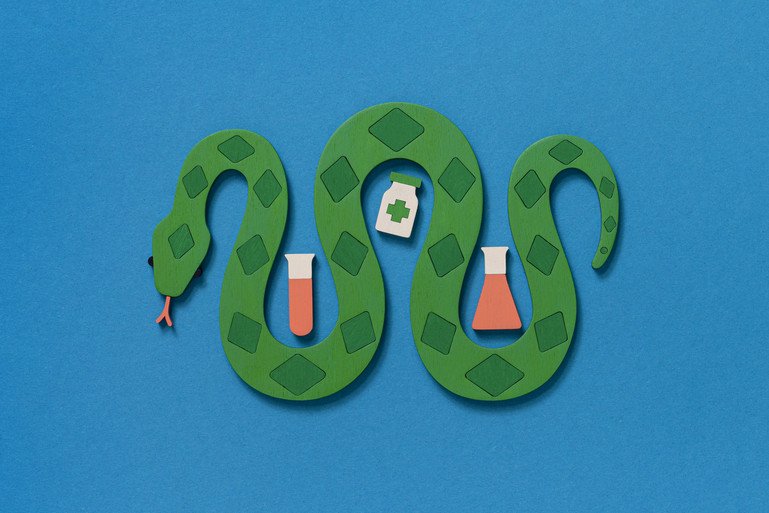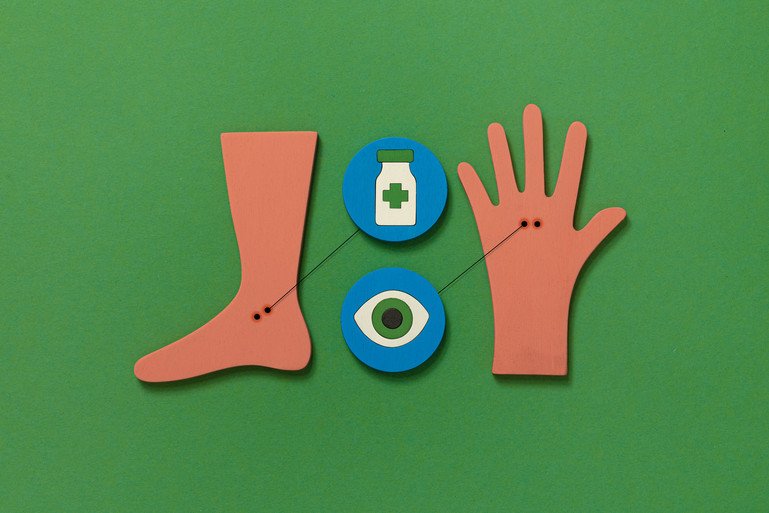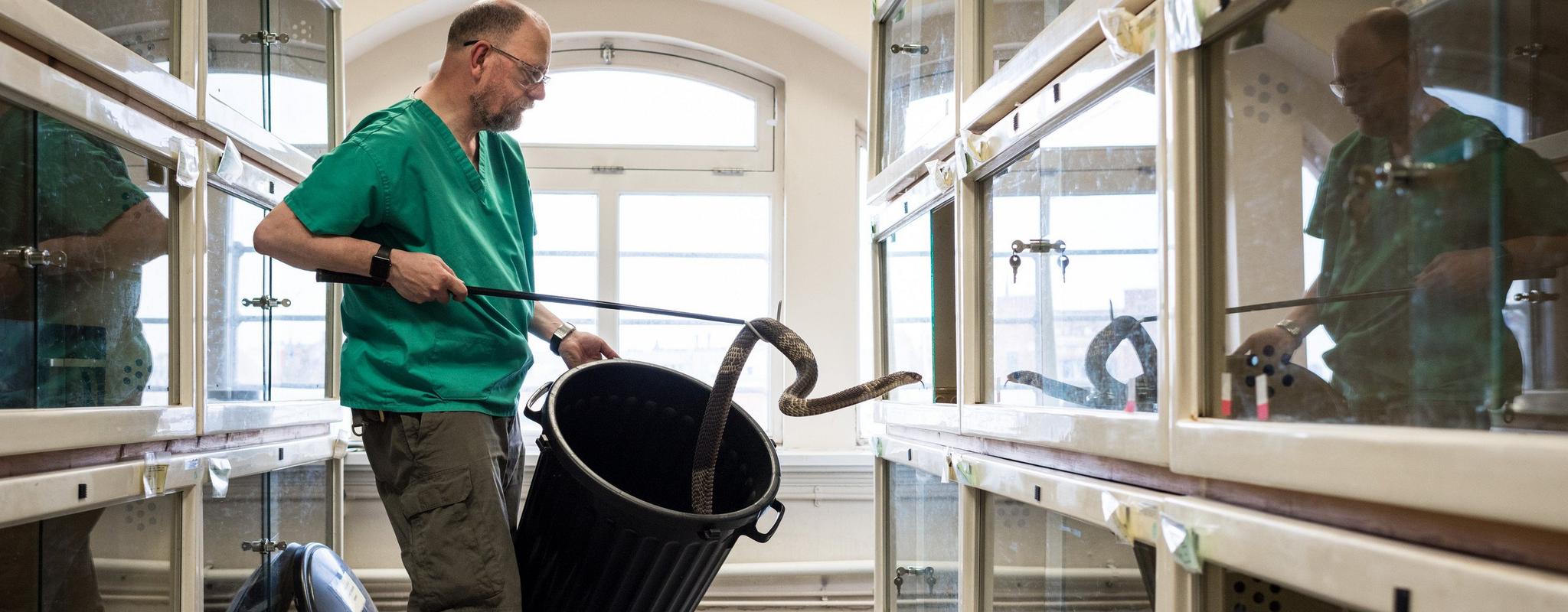What we want to achieve
Treatments for snakebites already exist and yet the human toll from snakebites is one of the world's biggest hidden health crises. They are thought to result in over 100,000 deaths every year, and leave another 400,000 with life-changing disabilities, mostly in the poorest communities. To prevent this, we want to help make safe, effective, and accessible snakebite treatments a reality for everyone.
Areas of focus
We want to help transform the way in which snakebite treatments are researched, developed and delivered. If successful, this will also serve as a model for other neglected tropical diseases (NTDs).

Ryan Chapman for Wellcome
Ambition 1: Bring production of snakebite treatments into the 21st century
Antivenom remains the only treatment for snakebite, yet it relies on outdated technology with inconsistent safety and efficacy standards.
We aim to modernise production by applying advanced science and technology to create safer, more effective, and affordable treatments. By collaborating with the World Health Organization (WHO), producers and partners, we seek to establish robust regulatory systems that accelerate access to high-quality antivenoms.

Ryan Chapman for Wellcome
Ambition 2: Develop the next generation of treatments
Current antivenoms are costly, can cause harmful side effects, and are not always effective.
We are committed to advancing new and alternative treatments that are safer, more broadly effective, and easier to produce. By building a strong evidence base, we aim to support the development and sustainability of innovative therapies for snakebite.

Ryan Chapman for Wellcome
Ambition 3: Build and sustain snakebite as a global health priority
Snakebite envenoming has long been overlooked as a public health issue, and the market for treatments remains unstable and costly.
To change this, we aim to raise awareness of the scale and impact of snakebite, particularly in low- and middle-income countries. We also support efforts to embed prevention and treatment into health systems, resulting in more consistent access to care where it’s needed most.
Dr Bernadette Abela-Ridder, World Health Organization, Switzerland
WHO has identified a need to develop the first public-interest Target Product Profiles (TPPs) to support optimisation of current and emerging products to treat snakebite. TPPs can play a central role in the drug discovery and development process towards desired product characteristics, including access, equity, and affordability considerations.
We are supporting WHO to develop these TPPs with preferred and minimally acceptable profiles for antivenom therapeutics. An initial focus is on conventional antivenoms for Sub-Saharan Africa, to be followed by equivalent TPPs for South Asia and for both small molecule and engineered antibody therapeutics. The resultant TPPs will assist manufacturers, regulators, clinicians and researchers with product standardisation and guide more targeted research and development of antivenoms.
Professor John Landon, MicroPharm, Wales
While exciting progress is being made in the development of the next generation of antivenoms and treatments, this will take time and interim solutions are urgently required to address snakebite. Fav-Afrique is a highly effective, polyspecific antivenom designed to treat envenoming by ten of the most dangerous venomous snake species in sub-Saharan Africa. It has not been in production since 2014.
We are supporting Wales-based pharmaceutical company MicroPharm to undertake the research underpinning the modernisation and simplification of the Fav-Afrique manufacturing process with a view to increasing yield and decreasing production costs. The aim of this project will be for MicroPharm to re-establish regular supplies of Fav-Afrique to Africa.
“We’re driving momentum in snakebite research and development by improving current treatments, accelerating future solutions and raising awareness of this neglected global health challenge. We believe progress in these areas will lead to much needed improvements to health outcomes for patients in high-burden settings.”
Progress so far
In 2019, we launched a seven year, £80 million programme, committed to transforming the way snakebite treatments are researched and delivered to help make them safe, effective, and accessible for all.
In 2025, Wellcome supported the formation of a Global Snakebite Taskforce (GST), formed of experts, policymakers, funders, researchers, health professionals, community advocates and global leaders at the forefront of the global response to snakebite.
The Global Snakebite Taskforce is convened independently under the co-chairship of the Kenyan Ministry of Health and Elhadj As Sy, Chancellor of Liverpool School of Tropical Medicine and Member of Wellcome’s board. The Taskforce was launched at the 78th World Health Assembly, where the co-chairs set out their commitment to driving progress and catalysing action to addressing snakebite.
The GST is part of a wider Strike out Snakebite (SOS) initiative, supported by Wellcome to increase awareness, action and funding to drive progress towards the WHO’s goal of halving deaths and disabilities from snakebite by 2030. The GST will convene key actors from the snakebite envenoming stakeholder community and beyond to catalyse political will, galvanise commitments to act, and mobilise additional resources towards this goal.
Through these initiatives, we hope to increase awareness and understanding of snakebite envenoming, positioning it firmly on the global agenda as a critical global health issue.
In support of this work, a new GST-led report was published in May: Time to Bite Back: Catalyzing a Global Response to Snakebite. This comprehensive report tracks global progress on snakebite prevention and treatment, and is a call to action for policymakers, funders, researchers and industry to scale up their efforts to address snakebite.
Through these initiatives, we hope to increase awareness and understanding of snakebite envenoming, positioning it firmly on the global agenda as a critical global health issue.
Research projects we support
We are a global programme, supporting research projects that take place in, and involve stakeholders from over 30 countries.
The research locations listed above are broadly defined and include countries where research projects, administrative organisations, partnerships, consultations and other work relating to the projects we are supporting has been active.
Commissioned reports
Snakebite envenoming drugs and biologics pipeline 2015 - present
We commissioned a comprehensive review of the pipeline of snakebite drugs and biologics in development since 2015. It provides an overview of snakebite treatment development in the past seven years, insights into the treatments in the pipeline and the opportunities for investment and collaboration.
Access the full dataset through the interactive web-based portal here.
Snakebite research funding 2007-2018
We commissioned the first comprehensive look at funding for snakebite envenoming research globally between 2007 and 2018.
Contact us
If you have any questions about our programme or the research we are supporting, please contact us via email.
Our Team

George Phillips
Senior Research Manager
Wellcome
Connect with George:

